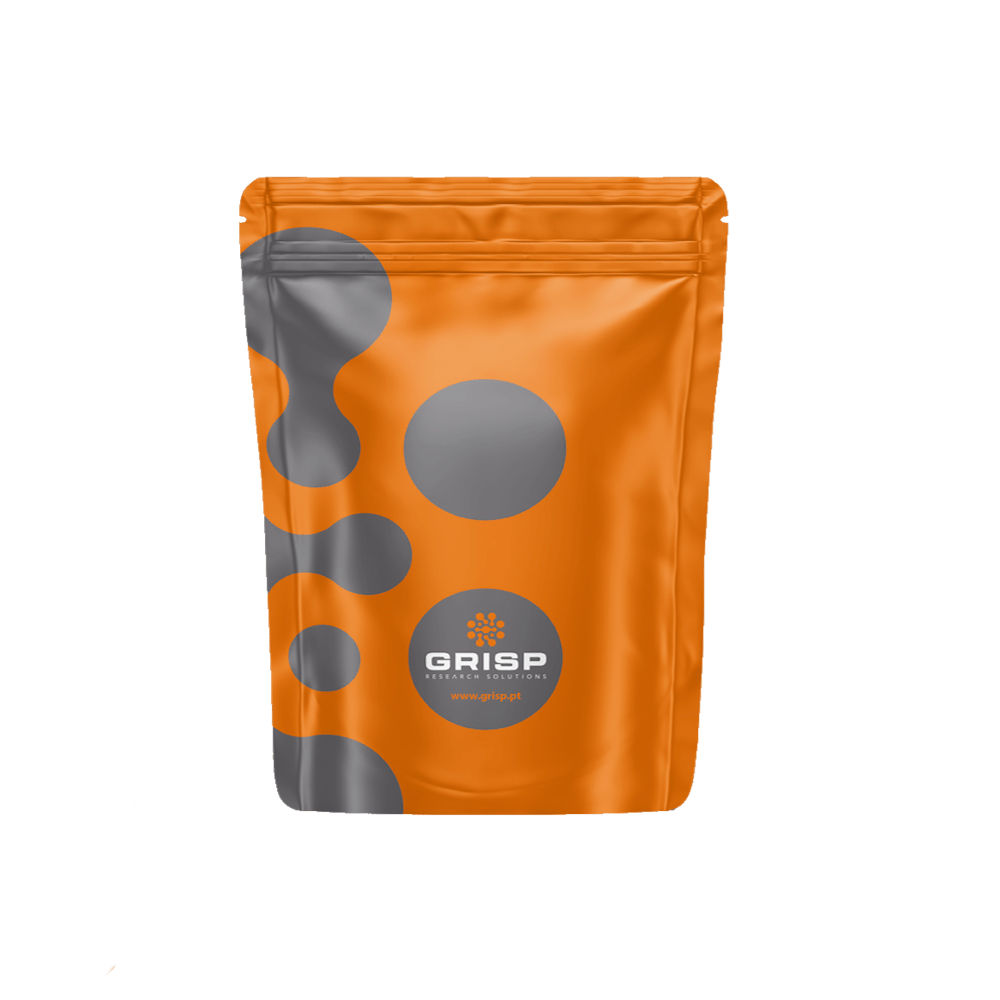Description
Xpert directXtract Lysis Buffer combines a thermostable protease with an optimized buffer, enabling simple but efficient extraction and conversation of DNA from a variety of samples, including whole blood, mouse tails and ear punches, FTA-cards, FFPE tissue, and many more. The extracted DNA is suitable for PCR, eliminating the need of time-consuming and costly DNA purification methods. DNA extraction is carried out in a single tube, without the need of multiple washing steps, therefore minimizing the risk of contamination. DNA is ready for PCR in only 15 minutes!
DNA that has been extracted with Xpert directXtract Lysis Buffer may be amplified with any optimized PCR system. However, GRiSP recommends Xpert Fast Hotstart DNA, which with its extension rate of 4-8 kb/min not only allows for fast PCR, but in combination with optimized buffer ensures high yield and sensitivity.
Features
Samples:
The amount of required sample depends on the type of sample. Recommended quantities for 100 μl extractions are as follows:
Mouse Tail: 1 to 2 mm (approx 5 mg)
Mouse Ear Punch: 2 to 4 mm2 (approx 5 mg)
Animal Tissue: 3 to 30 mg
FFPE Tissue: 1 mm3 (or 2 mm2 of a 10 μm section)
Buccal Swab: 1 swab
Blood (mammalian): 2 to 8μl of fresh blood (with EDTA as anti-coagulant)
FTA or Guthrie card: 2 mm2
Hair follicles: 1 to 10 follicles
DNA extractions may be scaled up (or down), however, the ratio of sample to extraction volume should remain as indicated above. In case of buccal swabs, if desired, use larger volume per swab (up to 300μl) to increase yield.
QC: Functionally tested in PCR, using Xpert Fast Hotstart Mastermix (2X) with dye [#GE45]. Absence of endonucleases, exonucleases, and ribonucleases was confirmed by appropriate assays.
Storage: -20ºC for at least 1 year. No loss of performance is detected after 20 freeze/thaw cycles.
Protocols
1.Extraction
Prepare for each sample 100 μl reaction mixture consisting of 70 μl PCR-grade ddH2O, 20 μl Xpert directXtract buffer A, and 10 μl Xpert directXtract buffer B. Cover each sample with 100 μl of reaction mixture and incubate at 75ºC for 5 minutes (lysis and protein denaturation). Heat-inactivate by incubation at 95ºC for 10 minutes. Centrifuge at 14.000-16.000g for 1 minute to pellet debris and transfer the cleared supernatant to a new DNase-free microtube. Any remaining visible residue will not have a negative impact on the downstream PCR. Store at -20ºC for up to several months, or proceed with PCR directly.
2.PCR
Optimal PCR cycling conditions (incubation times, temperatures, and concentrations) depend on DNA target (GC-content, size, quantity, purity, etc), specific primers, buffer composition, MgCl2-concentration, and the nature and concentration of the DNA polymerase, and need to be determined case by case.
We recommend to dilute the DNA extract 10-fold with PCR-grade water (e.g. 5 μl of DNA extract + 45 μl ddH2O) and then use 1μl as template in a 25 μl reaction. This 10-fold dilution ensures the dilution of PCR inhibitors. If the DNA concentration is too low, one can dilute less (e.g. 5-fold or undiluted), however, this might result in a less efficient amplification as the concentration of inhibitors will also be higher and it might be necessary to adapt the cycling conditions (number of cycles and/or extension time). Alternatively, results might be improved if template DNA is diluted even more (e.g. 20-fold).

